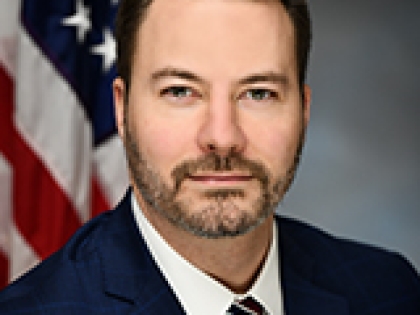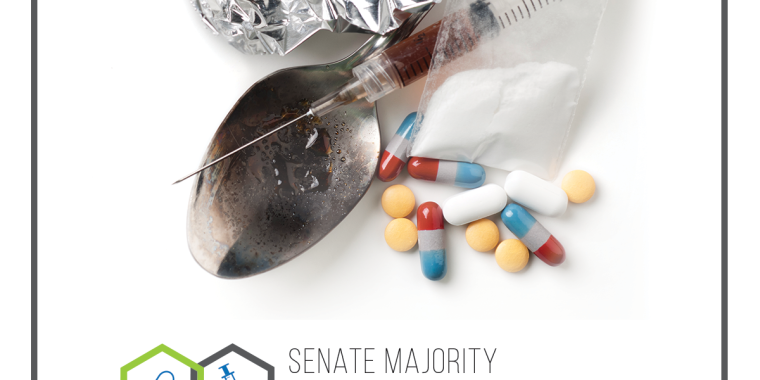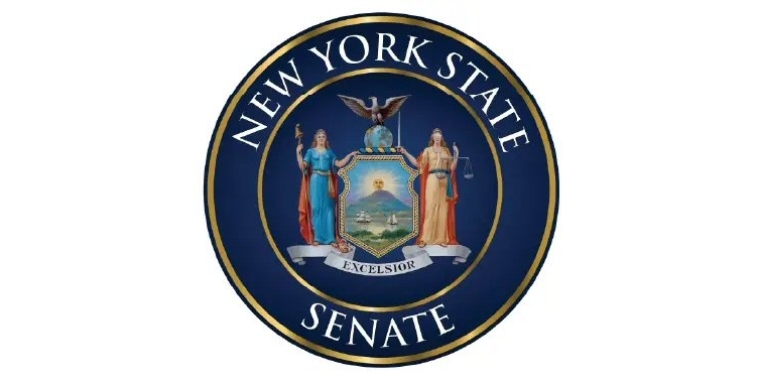
State Senate’s Task Force on Heroin & Opioid Addiction’s Challenge to Federal Government: Let’s Work Together to Defeat the Heroin Epidemic
Michael Jefferson
December 20, 2016

Albany, NY - The passage of the groundbreaking bipartisan 21st Century Cures Act on December 7th has been called a true Christmas miracle, with $1 billion in funds specifically earmarked to help combat heroin and painkiller addiction and assist with recovery.
The bill will help implement the comprehensive framework of the Comprehensive Addiction and Recovery Act, which focuses on prevention, treatment, recovery, support and criminal justice reform. The funding will supplement state activities, such as improving prescription drug monitoring programs, implementing prevention activities, training for health care providers and expanding access to opioid treatment and recovery programs.
In a letter addressed to the Substance Abuse and Mental Health Services Administration (SAMHSA), as well as United States Senators Charles Schumer and Kirsten Gillibrand, the members of the New York State Task Force on Heroin & Opioid Addiction, offered to partner with the federal government in a collaborative effort to fight against this deadly epidemic. The Task Force also requested a detailed description of how the 21st Century Cures Act funds will be allocated, distributed and utilized by the states to combat the opioid epidemic, as well as what portion of those funds will be specifically allocated to New York State.
"The residents of our communities are struggling to defeat one of the worst epidemics in state history," said Senator Murphy. "It is tearing families and communities apart. The Cures Act moves the effort to combat addiction forward, but we are far from finished. It is clear that addressing this problem requires a multi-faceted comprehensive approach involving collaboration at all levels of local, state and federal government. We look forward to an opportunity to work with the federal government to make sure New York gets the funding it needs to combat this terrible scourge."
Senator Robert Ortt said, "The heroin and opioid epidemic needs to be tackled on all fronts - at the local, state and federal levels - in order to successfully combat the growing issue. The measures the Task Force recently passed in the state Senate are a result of years of collaboration with law enforcement, health professionals and recovered addicts. It's now time we take it a step further and work together to effectively respond to this crisis and save lives. Not doing so would be an irreparable disservice to our communities, families and those on the front lines of this war on drugs."
"New York State has been at the forefront in developing a four-pronged approach to help those who have been affected by the heroin crisis in our communities," said Senator George Amedore. "But we must continue to work together at all levels of government. The 21st Century Cures Act will provide much needed resources in our fight against the opioid epidemic, and I look forward to working with our federal representatives to ensure the funding is best utilized to continue our efforts to help those who are struggling with heroin and opioid addiction."
The Senate Majority Task Force on Heroin & Opioid Addiction has worked persistently during the last two years, traveling the length and breadth of the state, holding forums and community meetings in order to gain an in-depth understanding of the opioid epidemic plaguing our residents.
As a result of face-to-face communication with communities affected by the heroin epidemic, the Joint Task Force formulated one of the most comprehensive legislative packages in the country to improve prevention, treatment and recovery options, as well as empower our law enforcement with the tools necessary to combat this public health crisis. The package of bills was so comprehensive that the White House looked at it as a model for its national approach.
Among the Task Force's many accomplishments:
- Removing overly burdensome barriers to inpatient treatment and lifesaving medications;
- Mandating insurance coverage for Naloxone;
- Improve and expand wraparound services;
- Require continuing education on addiction and pain management to all prescribers;
- Reduce initial opioid prescriptions to no more than a seven-day supply; and
- Provide necessary consumer education.
In addition to the $1 billion to help states deal with heroin and opioid abuse, 21st Century Cures Act provides for $4.8 billion in new funding for the National Institutes of Health (including $1.8 billion for cancer research); $1.6 billion for brain diseases, including Alzheimer's, and $500 million in new funding for the Food and Drug Administration.
Share this Article or Press Release
Newsroom
Go to Newsroom

